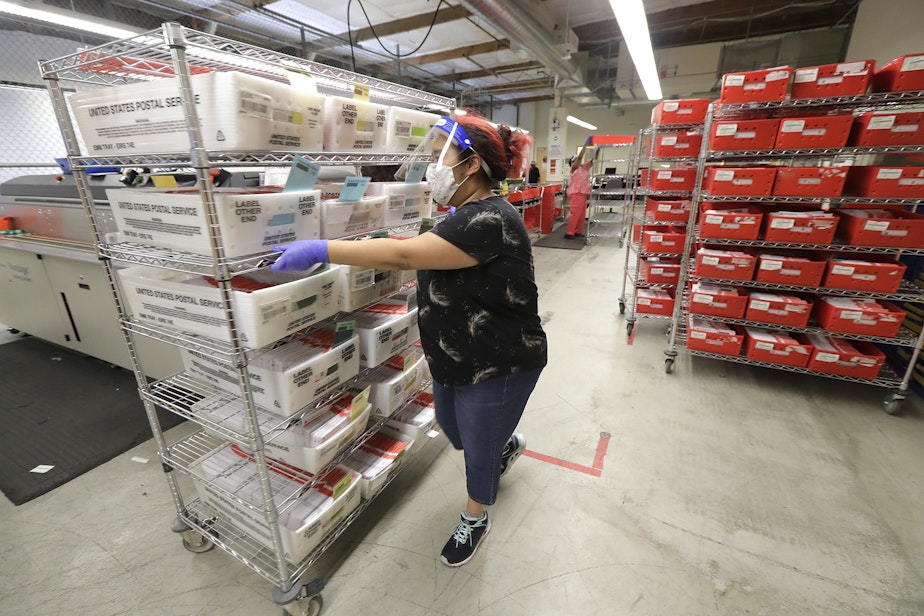Election Day: Will Seattle voters choose 'back to basics' candidates or stick with 'activists'?

Seattle's General Election to choose its next mayor, city attorney, and council members is on Tuesday. The election will determine if Seattle aims to stray further from the center or get back to basics.
Time is running out for voters to turn in their ballots. (Have you turned in your ballot, by the way? You should take care of that.)
Current Seattle City Council President Lorena González and former Council President Bruce Harrell are fighting for votes until the very end. They met for their last debate Thursday to hash out their differences on policing.
The candidates are similar in some ways, having served together on the City Council as Democrats and agreeing broadly that issues like chronic homelessness must be prioritized.
Public safety is on that list, too, as gun violence has increased and the future of policing is still undecided.
Sponsored
González and Harrell have drawn their lines on policing. González favors alternatives to policing while Harrell has promised to hire more police officers.
The line could not be more clear than it is in the race for Seattle city attorney.
"Talk about polar opposites: an abolitionist versus a Republican," says Erica Barnett, editor and publisher of PubliCola; she's referencing Nicole Thomas-Kennedy, a former public defender whose ultimate goal is to no longer need police or prisons, and Ann Davison, a private attorney who ran for lieutenant governor as a Republican last year.
The city attorney's office prosecutes misdemeanors ranging from offenses like graffiti and trespassing, to more serious charges like domestic violence and DUIs. Davison says she'll prosecute misdemeanors more vigorously and advocate for crime victims.
Thomas-Kennedy wants to stop prosecuting most misdemeanors and to seek alternatives outside the courts.
Sponsored
"Centrist Seattle Democrats are going to have to decide whether they want to vote for somebody who is far too the left of them or somebody who is presenting herself as maybe not that far to the right of them after all," Barnett says.
The city attorney race has been of interest since the General Election candidates were decided in August; incumbent City Attorney Pete Holmes lost his bid for re-election in the primary.
Political analyst and columnist Joni Balter says the race now represents a larger divide in the city, between those who want "their old city back." Thomas-Kennedy does not get them there, she argues.
But just as there is not unanimous agreement on who the best candidate for the job is, there is not unanimous agreement on what the "old city" was exactly — not to mention whether it was or is good for everyone who lives here.
Sponsored
Barnett notes a similar distinction between City Council Position 9 candidates Nikkita Oliver and Sara Nelson.
Oliver, an educator and attorney, would maintain the "activist" status quo on the City Council, Balter says; that's a reality Balter believes will work against Oliver with more moderate voters.
Nelson, a small business owner, would agree; she's the "back-to-basics" candidates, Barnett says, who thinks the Council needs to move closer to the center.
Neither Barnett nor Balter could say with absolute confidence who is likely to pull off the win.
Barnett doesn't like to make predictions, anyway, but there are always exceptions.
Sponsored
"I will give you one prediction: I think Teresa Mosqueda is going to win Position 8," she quips, referring to the incumbent City Council member who is widely expected to keep her seat. "That's my bold prediction."





